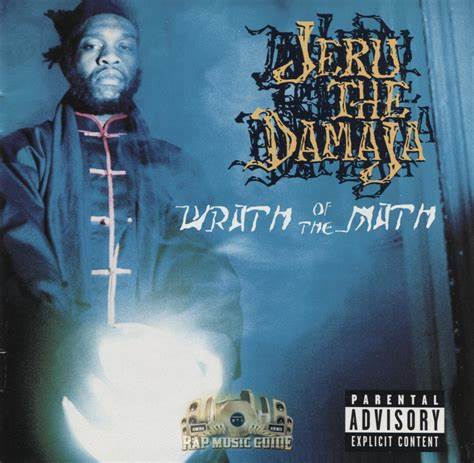Chinese
Acupuncture Kung Fu (1988)
aka: Miracle
Needle; Magic Needle; Damager
Chinese Title: 氣功大師
Translation: Qigong Master
Starring: Chen Yu-Shen, Wan Chung-Man, Wong Man-Yee, Ho
Pak-Kwong, Chen Qitang
Director: Ding Zhuo Lun
Action Director: n/a
Back in the late
90s and early 00s, lots and lots of kung fu movies were released on VHS and DVD
as part of numerous collections, all presented or endorsed by the rap group Wu
Tang Clan. One of the DVD collections was the “Soul Assassins” collection.
Movies on that collection included Secret Message, retitled The Stomp
(probably after the popular pop-gospel song by the Reverend Kirk Franklin); Zombie
vs Ninja, retitled Gravedigger (after the other group RZA was a part
of, The Gravediggaz); The Marvelous Kung Fu, retitled
Sandman (after a song from Method Man’s first album Tical); and The
Legend of All Men are Brothers, retitled The Secret of the Water
Technique. Then there’s this oddity.
Chinese Acupuncture Kung Fu is a Mainland Chinese co-production with…well, I’m not sure.
According to the HKMDB, it was produced in China by a Hong Kong production
company. However, the Chinese-language movie site Douban says that this was a
Taiwan-Mainland co-production. I find it unlikely that Taiwan would have been
involved in this, even though at some point, Taiwanese performers did have fluid
movement between the PRC and Taiwan (see Shu Qi). I do think this was made
principally for Chinese audiences, as kung fu movies (which this film barely
qualifies as) had long been an anachronism in Hong Kong by 1988. This is
obscure enough that we barely have a cast list or a director. It was released as
part of the “Soul Assassins” collection under the title Damager, most
likely a reference to an East Coast rapper named Jeru the Damaja.
Okay, so there’s a well-known accupuncture named Dr. Nip (prolific character actor Ho Pak-Kwong, of Knockabout and Choy Lee Fut Kung Fu). When the Qing official’s son gets sick, the official sends for Dr. Nip. Nip, scared that failure will result in the execution of him, his family and his restaurant-clinic’s employees, just gets out of dodge and goes to Shaolin to hide out. The young prince dies and the official blames Dr. Nip, vowing revenge.
At some point, Dr. Nip is in the neighborhood and is attacked by soldiers and rescued by a noble Wong family. The family’s scion, little Wong Shek-Ping, finds Dr. Nip and nurses him back to health. Nip starts teaching young Wong internal martial arts (like tai chi chuan), qigong, and acupuncture. When Nip has to go away on business, he has some Shaolin monks continue the boy’s training. The Qing Dynasty is overthrown and within a few years, former Qing official Yuan Shi-Kai becomes the new “emperor” of China. Shek-Ping grows up to be virtuous young man and a talented acupuncture doctor. He leaves his home and master to become a doctor.
Arriving in the capital Nanking, Wong Shek-Ping gains loads of fame by curing Yuen Shih-Kai himself. This gets him the attention of some German doctors; one of them is curious about the science behind acupuncture, while the others dismiss it as quackery and want to prove Shek-Ping to be a fraud. Meanwhile, the deposed Qing official has gone crazy and now dresses like a ninja, looking for Dr. Nip. Qing Ninja Guy attacks Shaolin and manages to kill the abbot by ramming a cudgel up his rump. He attacks Dr. Nip and his family (his wife and daughter, the latter played by Shaw Brothers actress Wong Man-Yee). They go on the run again, although at some point (we never see when), Dr. Nip dies and leaves his wife and daughter to wander around, looking for Wong Shek-Ping.
Once in Nanking, crazy Qing Ninja Guy
attacks Mrs. Nip and her daughter, killing the former. She is able to get away
and ultimately is reunited with Wong Shek-Ping. Shek-Ping and the German doctor
continue to perform medical miracles with acupuncture, including one operation
in which Wong punches a guy in the chest to “get his heart out of the way”
before he inserts a needle in the cavity there. The evil German doctors try to
frame Nip and his clinic for murder, but they are saved by Yuen Shih-Kai. But
those doctors aren’t finished yet…nor is the crazy Qing Ninja Guy.
Mark Pollard of the website “Kung Fu
Cinema” infamously gave this film 0 stars out of five. I can understand why:
this is the most incompetently edited movie on record. Period. The fight
scenes, of which there are few, had their film stock chopped up with a chainsaw,
throw into the air, and then randomly reassembled. So, you’ll see characters
fighting in a bunch of random quick cuts, and then something like Ninja Guy
killing Mrs. Nip with a dart, another barrage of random fight images, and then
Nip’s daughter talking to her mom as if nothing happened. It’s completely
nonsensical, and scenes like this happen throughout the entire movie.
There is not a lot of action. You have
one fight between the Qing Ninja nutcase and the Shaolin monks. A couple of
brief fights between Nip’s daughter and the same, plus his lackeys. There is a
final showdown between Nip’s daughter, Wong Shek-Ping and Ninja Guy, which was edited
with a .50 caliber machine gun. And then, to keep the suspense up, the good
guys have to infiltrate a German hospital and save their friend, beating up
random doctors hellbent on the keeping them from getting inside. Uh…okay.
So if you want to see a guy talking
about acupuncture and occasionally performing Reiki on his patients—complete with
little animated energy effects—before jabbing them with a ginormous needle,
this is the film for you. If you want to watch a good movie, stay away.
Stay the heck away.













